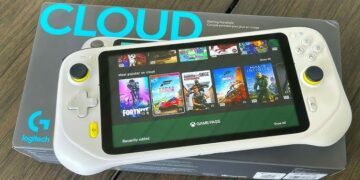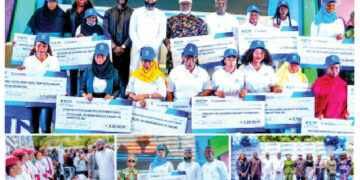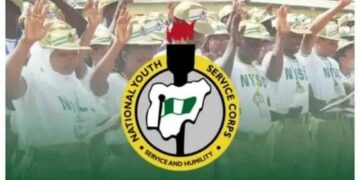At the last count, over 30,000 secondary students from 342 secondary schools in the FCT and 10 states across six geopolitical zones of the country have become entrepreneurs, benefitting from an extra-curricular Students Entrepreneurship activity – Hub (SEA-Hub) in the past six years.
The scheme, a brainchild of the Pro-Poor Growth and Promotion of Employment in Nigeria Programme- SEDIN, implemented by Deutsche Gesellschaft für Internationale Zusammenarbeit (GIZ), an agency of the German Federal Ministry for Economic Cooperation and Development, is working in partnership with Nigeria’s Federal and State Ministries of Education and Science and Technology.
The scheme helps students develop an innovative and critical entrepreneurial thinking ability for self-reliance. The concept fosters opportunity recognition, innovation, risk-taking and critical thinking with the students coached on setting up and effectively managing an entrepreneurship-oriented club in their various schools.
Currently, SEA-Hub has spread to 64 local government areas in Niger, Ogun, Plateau, Edo, Lagos, Yobe, Kaduna, Delta, Imo and Osun. It has trains and empowers secondary school students across Nigeria with basic entrepreneurship skills.
A visit to SEA-Hub clubs in Alimosho Senior Grammar School, Gowon Estate in Idimu and Abesan Senior High School, Abesan Housing Estate, Ipaja both in Alimosho local government, Lagos state on Tuesday October 11th 2022 and Government Secondary School Tudun Wada, in Jos, Plateau state on Tuesday, October 18, 2022 were eye-openers to the numerous entrepreneurial solutions developed by these students.
Focusing on Students
In recent years, entrepreneurial skills training and development has become extensively targeted at adult learners across various sectors. While training to capacitate adult entrepreneurs becomes popularly accepted as a means to ensure sustainable economic growth, a focal majority of the young future workforce remain inadequately exposed to the requisite skills and possibilities of practical business.
In recognition that the youth demographic is potentially Nigeria’s future economy driver, GIZ- SEDIN programme considers it necessary and even more impactful to foster a culture of innovation and critical solution-oriented mindset among secondary school students through complementary practical entrepreneurship experience and activities.
Head of Cluster, Sustainable Economic Development, GIZ Nigeria, Markus Wauschkuhn disclosed that SEDIN introduced the SEA-Hub in its effort to curb youth unemployment in Nigeria. The scheme is targeted at inculcating basic entrepreneurship training for secondary schools in order to prepare them for the now and for life after school.
The SEA-Hub programme “began in 2016 with pilots in three LGAs of Niger State, and has since upscaled to four states – Niger, Ogun, Plateau and Edo. About 394 Secondary Schools have participated in the SEA-Hub training while 256 schools have active SEA-Hubs in their Schools across our present partner states where they are participating in different empowering entrepreneurial activities.
“SEA-Hub students are thought to identify challenges in their immediate community and brainstorm to provide innovative business solutions with emphasis on starting up such business with little or no funds/ capital. This is considered the unique selling point (USP) of SEA-Hub,” Wauschkuhn said.
Since 2016, SEDINGIZ through the SEA-Hub, has worked towards achieving this priority, leveraging on partnerships to upscale from a pilot presence in 3 LGAs in 2016 to 45 LGAs across four States. “All our partners have been strategically engaged, to work in sync to ensure the objectives of the SEA-Hub are met. These include the states ministries of education, Business Development Committee Network (BDCN), school heads, the teachers, parents and the students,” he added.
Teaching Students How To Fish
Over 300 SEA-Hub graduates are running their personal businesses which translates to 1-2 jobs created. Over 700 teachers have been impacted directly or indirectly with a number of them reportedly running their businesses. Piloted at federal level with 18 Federal Unity Colleges across the six geo-political zones, SEA-Hub students now implement community projects from their business proceeds as CSR projects.
In Lagos, students of the SEA-Hub clubs in the 24 junior and secondary schools spread across Alimosho, Agege and Ifako-Ijaiye local government areas are being trained on basic skills sat such as making soaps, Adire cloths, handcrafts, tailoring, peanuts, flower vase, mobile app for e-learning, computer programming, plantain chips, buns, farming, car wash business, etc.
Senior special assistant to the Lagos state government on Education, Ms. Adetola Salau said SEA-Hub has been established in 24 secondary schools in Alimosho, Agege and Ifako-Ijaiye local government areas and the state is working to scale it up to more LGAs.
“The programme has woken up the entrepreneurial talents of students in the state and it changing their perception of how to make money. The key thing is making sure our students are involved in this programme and learning how to fish,” Salau added.
The director, Lagos State Comprehensive Schools Programme, Mrs. Lucy Amoaka said the first thing that was done in the state was training of the teachers and selected students’ representatives on SEA-Hub after which the students were sent back their schools to take the message to the wider students, teachers and principals in 24 schools.
“After the training, the students were asked to start a business with little or no capital. They were told to find a need or problem in the society and find a solution, then create a business to solve it. The way GIZ changed lives of these students is something amazing. The students now run businesses that controls thousands of naira,” she said.
Platuea state commissioner for education, Mrs. Elizabeth Petkwap Wapmuk, said the state government took it a notch higher, by making sure that all local government have SEA-Hubs. “The state government, especially the governor is happy with the SEA-Hub and our students have keyed into it. We are making progress and this showed in the maiden national competition held in 2019 where Plateau state came tops.”
Beneficiaries Testimonies
The managing director of Alis Hub International, Miss Akinfema Boluwatite, the SEA-Hub club of Alimosho Senior Grammar School, Lagos said students have been trained and now making soaps, Adire cloths, handcrafts, tailoring, peanuts, flower vase, mobile app for e-learning, computer programming, plantain chips, buns, farming, etc.
One of the beneficiaries of the SEA-Hub training, Miss Joy Amos, owner of a hairdressing salon on Mazah Road, Odus, Jos said she was proud of the mentorship acquired at her former Government Secondary School, Chwelnyap, Jos, Plateau state which has enabled her to cater for education.
“I joined SEA-Hub in 2018. At this time, we were used to Jet Club, Literary and Debating Club and Peace Club. The most important thing that drew our attention was the board of directors’ composition where you have positions like managing director, etc. SEA-Hub taught us how to start a business with little or no capital and how to managing our finances. I was learning hair dressing before I joined SEA-Hub but I had no intention of setting up my own shop because I though capital was problem.
“When I graduated from my work place, I took a risk to sent up my own business with part of my school fees but the money was not enough and I needed like N200,000 but I only had N30,000. I rented a very small shop, took risk and endured. Many people said I should come and work for them, I said no, I want to be a entrepreneur.
“Today, I am 400-level student of the University of Jos. I have about 10 people working and undergoing training under me in my shop. With the help of God and the knowledge I acquired in SEA-Hub. This is not my final Busstop, I am planning to move to a bigger shop by next year,’ she added.
Two other graduates of SEA-Hub, Mr. Reuben Yakubu Gada, former student of Government Secondary School, Tudun Wda, Jos and CEO of Benlice Home-Made Bread and Joseph Innocent Okoli. CEO of J-Creations and former student of GSS Township, Jos narrated how the skills bakery and graphics printing skills acquired at SEA-Hub clubs in their respective schools have today made them entrepreneurs.
A visit by LEADERSHIP to Government Secondary School, Tundun Wada, Jos In Plateau state, revealed assorted solutions such as biogas cooking gas, embroidery, relation stool sourced from plastic waste, etc created by The Innovative Explorers SEA-Hub Company led by Entrepreneurs Paul Sati Watson and Leewaj Leo who are the CEO and director of finance the club.
How It Works
Project lead, SEA-Hub, Mr. Babafemi Oyediran, said the approach is: SEDIN trains selected students and teachers from identified schools; students set up weekly co-curricular SEA-Hub club meetings and they create mini-businesses with little or no funds to practice real-time entrepreneurship.
“They get periodic mentorship sessions by successful entrepreneurs and support from the local business community. They embark on regular visits to local enterprises and participate at entrepreneurship competitions and exhibitions for SEA-Hub schools,” he said.
“By acquiring skills that is translated in to running thriving businesses, the SEA-Hub is enabling young people become self-reliant and confident about the future. Listening to them share their entrepreneurial foray experiences shows that even as we await their tomorrow, they are holding fort, today. Their voices and the buoyancy hope and aspirations they convey have made it clear to all that their future is indeed secured.
In 2016, the pilot started in Kontagora, Bida and Borgu LGAs and in 2017 expanded to Suleja, Bosso, Wushishi and Agaie LGAs of Nigeria state; in Shagamu, Ijebu Ode, Waterside, Yewa North, Abeokuta North, Remo North and Ijebu North in Ogun state; and Mangu, Bokkos, Shendam, Bassa, Pankshin, Jos South and Wase LGAs.
In 2018, SEA-Hub expanded to Rafi, Shiroro, Rijau and Lavun LGAs of Niger state; Abeokuta South, Ipokia, Ikene and Yewa South LGAs in Ogun state; Barki Ldi, Jos North, Langtang South and Kanam LGAs of Plateau state;
In 2019, Mokwa, Chanchaga, Paiko and Lapai LGAs in Niger state; Odogbolu, Ijebu North-East, Ewekoro and Adoda-Ota LGAs in Ogun state; Jos East and Riyo LGAs in Plateau state; Egor and Oredo LGAs in Edo state were added.





